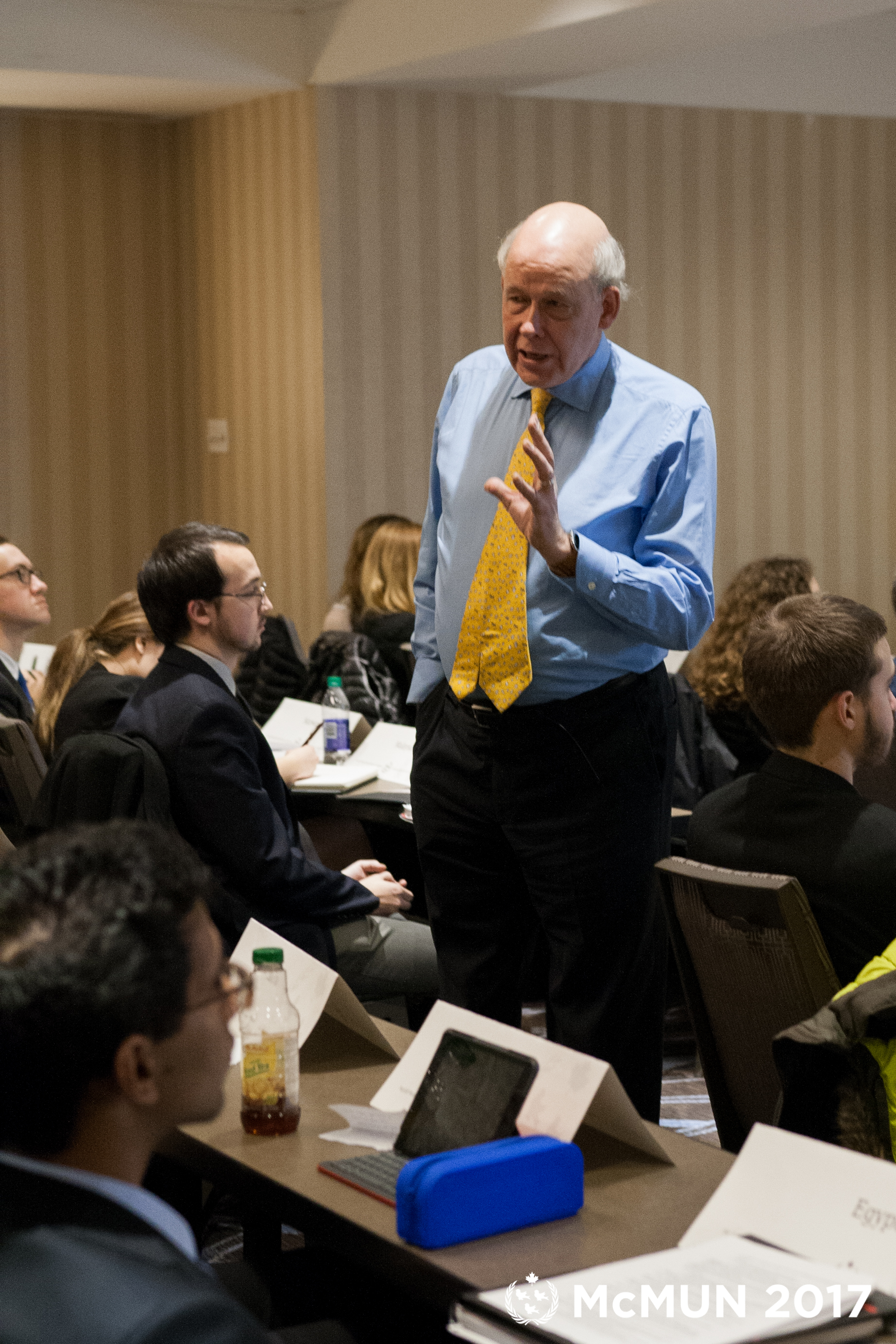McMUN 2017: Guest Speaker Karl Moore Talks “Globalization – the Long View” with the WTO

Among the many lessons that delegates will take away from the McMun experience, this guest lecture will certainly rank as one of the most enriching. With an abundance of knowledge and an enticing charisma, McGill’s very own Professor Karl Moore of Desautels took the floor this morning as a guest speaker for the World Trade Organization (WTO) committee session. Delegates were all ears as the professor of globalization and post-modern leadership, shared his unique take on the long view of globalization and trade.
Moore began his lecture by noting that “globalization seems to be at a crossroad,” where the world has reached a new stage of globalization which will likely bring about unpredictable changes. To put things in perspective, he began by referencing Thomas Friedman’s book The World is Flat, in which the title metaphorically paints the globalized world as an equal playing field. The professor continued his lecture by taking delegates through a brief evolution of globalization, to show how the core of capitalism and world trade can be traced back to the Phoenicians, Ancient Greeks, and Ancient Romans, to name a few. He parallels the Roman military as a driver of capitalism, to a similar situation which characterizes the present day United States. The key themes of historical globalization are comparable to the present day, but it is the direct of global affairs that have changed.
So is the world actually flat as Friedman contended? As it turns out, it is better described as spiky. Consider an economic super power such as China, where immense wealth and power in Beijing and Shanghai, for example, is not spread throughout the country as a whole. Moore says that globalization is not about each nation becoming interconnected, but rather specific regions in different nations.
Moore takes these ideas into the present day, where he points to a few recent events that will have profound impacts on the future of world trade. Trump, he says, is looking at the world through a rear view mirror. Just as “generals fight the battles of their youth,” Trump is fighting a globalized economy of the past, which may indeed be headed in a different direction in the future. Similarly, Moore discusses the Brexit, in which Britain turned its back on one of the most profound economic integrations in the world. Perhaps the reason that political forecasters were so incorrect in predicting the outcome these two events is a result of the failure to see the world turning its back on globalization.
If we take a moment to refrain from looking in the rear view mirror, it is clear that, “globalization is morphing into something different – we just don’t know it yet.” Moore reminded the WTO delegates that the world is evolving at a historically unprecedented pace, which adds to the unpredictability that lies ahead.
Without a doubt, WTO delegates were both enlightened and inspired by Moore’s lecture, as it presented a non-traditional view on the fate of world trade as we know it today, and will continue to see in the future. Moore encouraged the young, bright, minds sitting before him to question the true meaning of globalization as it is customarily understood, and apply this knowledge in the context of their own ideas. WTO delegates will surely be mindful of Professor Karl Moore’s words as they progress throughout the rest of the conference.
